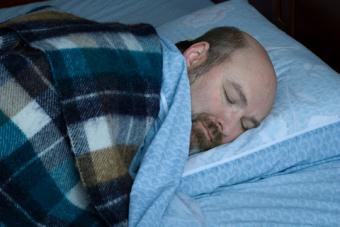
Excessive sleep is a health condition affecting millions of people in the United States. It is characterized by excessive daytime sleepiness. Most people sleep the same hours, with some variation, each day. This usually entails between seven and ten hours of sleep per night. Those that sleep during the day, or are very tired during the day, even after sleeping at night, may be suffering from one of several types of sleep disorders.
Types of Excessive Sleep Problems
There are four types of excessive sleeping conditions. Proper diagnosis of your problem will require a doctor to perform a sleep test.
Narcolepsy
Narcolepsy is a neurological disorder of the internal devices that regulate sleeping. The condition is described as the intrusion of the dreaming state of sleep into the waking state. The symptoms include excessive daytime sleepiness, dream-like images that happen at the onset of sleep, muscle weakness with strong emotions and sleep paralysis which is falling asleep and waking up in a state of paralysis.
Narcolepsy is a condition disabling more than 135,000 people in the United States. These individuals face a number of constant problems throughout life. Because the condition comes on erratically, they often require monitoring to stay safe.
Recurrent Hypersomnia
Individuals with this sleep disorder go through periods of time where they require large amounts of sleep. The level of sleepiness during these times is large during all times of the day. The periods of time can last days or weeks. Sometimes they occur just twice a year, or more. In some people, sleeping up to 20 hours per day is normal during this state.
Idiopathic Hypersomnia
Another excessive sleepiness disorder is idiopathic hypersomnia. Sometimes called non-REM sleep disorder, this condition causes individuals to have excessive sleepiness and prolonged sleep during nighttime hours. Here, the suffers will have a number of sleep episodes where there is no REM cycle. episodes can least for up to two hours.
Posttraumatic Hypersomnia
Individuals that go through physical injury or disease affecting the central nervous system may go through posttraumatic hypersomnia. Here, the individuals suffer from excessive sleep requirements due to conditions like brain injuries or even spinal cord injuries. In most people, this condition goes away several months after the injury.
Causes Of Excessive Sleeping Needs
The causes of hypersomina, or excessive sleeping, will range from person to person, and is not always understood by doctors.

They often include:
- Sleep schedules altered frequently due to work patterns
- Alterations of medications
- Lifestyle changes in which sleep patterns are altered
- Medical conditions such as narcolepsy or medications
- Sudden changes in sleep, such as jet lag
- Depression; often considered one of the forerunners in sleep disorders including hypersomnia
Getting Help for Excessive Sleep
Getting help for excessive sleep is important, especially when your conditions have come on suddenly. Sleep disorders like this can affect people of all ages, but they generally start to show between age 15 and 30. Symptoms of these conditions include:
- Apathy
- Frequent need to sleep or nap
- Chronic fatigue
- Concentration, learning or thinking problems
If you notice any of these symptoms in yourself, talk to your family doctor about them. They may require you to undergo a sleep study under which you will be monitored for several days while you sleep. Additionally, doctors will want you to keep a sleep journal which will record the activities and eating patterns of your day as well as the sleep patterns. Some doctors may recommend hypnosis to understand the underlying cause of the problem.
Medications may be required; but in most situations, doctors will recommend alterations to your diet and lifestyle that will encourage better sleep if your condition is not related to a disease like narcolepsy. Eating a healthier diet, getting outdoors, and balancing activities may be necessary. Reducing stress and managing other illnesses, especially depression, which may cause the excessive sleep may also be necessary.
Your family doctor is the best first person to talk to about any of your sleep problems. Most hospitals and clinics offer sleep studies to help understand sleep problems like excessively sleeping.







